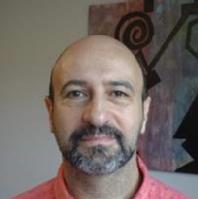WMS Events Calendar
Please see this page for MB ChB events.
BMS Seminar: Pervasive Transcription: Its Control and Impact on Gene Expression, Dr Domenico Libri, Institute Jacques-Monod
Abstract: Genomes of virtually all organisms are transcribed largely beyond regions that are annotated for producing functional RNAs, a phenomenon known as pervasive transcription. Many "non-canonical" transcription units produce non-coding RNAs that are often degraded rapidly by nuclear or cytoplasmic pathways. These RNAs and the act of non-coding transcription have potential for interfering with the expression of canonical genes, and in some instances can function as regulators. Transcription termination pathways play important roles in the control of pervasive transcription, both for preventing interference and for determining the fate of the RNA produced. I will present our latest studies on the generation of pervasive transcription (i.e. how transcription initiation is controlled) and on the role of transcription termination pathways for controlling it.
Biograp hy: Dr. Domenico Libri studied in Biological Sciences at the University of Pisa before obtaining his PhD at the Pasteur Institute in Paris. In 1991 he took a permanent research position at CNRS and then moved to the USA to become a Research Associate at Dr. M.Rosbash laboratory, Brandeis University. In 1996 he became Group leader at Centre de Génétique moléculaire (CGM), Gif-sur-Yvette and in 2005 was awarded Directeur de Recherche deuxième classe, CNRS (DR2) and in 2010 Directeur de Researche première classe, CNRS (DR1). In 2014 he became Group Leader at the Institut Jacques Monod in Paris. He has been a Chargé de mission of the INSB since 2011 and a Member of the direction council of the Institut Jacques Monod until 2018.
hy: Dr. Domenico Libri studied in Biological Sciences at the University of Pisa before obtaining his PhD at the Pasteur Institute in Paris. In 1991 he took a permanent research position at CNRS and then moved to the USA to become a Research Associate at Dr. M.Rosbash laboratory, Brandeis University. In 1996 he became Group leader at Centre de Génétique moléculaire (CGM), Gif-sur-Yvette and in 2005 was awarded Directeur de Recherche deuxième classe, CNRS (DR2) and in 2010 Directeur de Researche première classe, CNRS (DR1). In 2014 he became Group Leader at the Institut Jacques Monod in Paris. He has been a Chargé de mission of the INSB since 2011 and a Member of the direction council of the Institut Jacques Monod until 2018.
His scientific activity has been focused on the mechanisms of gene expression, with a particular interest on the metabolism and function of the RNA. He started working on RNA export and came to the serendipitous discovery of a novel class of non-coding RNAs that first revealed the existence of hidden transcription. His team’s activity has then turned to the study of the metabolism and function of these RNAs, and to the pathways that control their production and induce their degradation, and they became interested in transcription termination. Their scientific activity is now also directed towards the impact of pervasive transcription on other DNA-associated cellular processes such as replication and genome stability.
